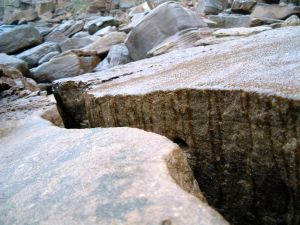 I grew up in Southern California and earthquake drills were part of regular life for families and school children. We were always waiting for the big one to hit. The truth is that big ones do hit and knowing what to do when an earthquake happens could make all the difference.
I grew up in Southern California and earthquake drills were part of regular life for families and school children. We were always waiting for the big one to hit. The truth is that big ones do hit and knowing what to do when an earthquake happens could make all the difference.
Today, I live in the Pacific Northwest and I have learned that earthquakes can happen anyplace. If your home is located near the epicenter of an earthquake you may need to know what to do if you suddenly find yourself in a big one.
When an earthquake starts it may take a moment to realize whats happening. Most people who are injured during an earthquake are hurt by falling objects. Another leading injury people face following an earthquakes is caused broken glass on the floor or glass-filled carpet. Broken glass is a hazardous risk long after an earthquake is over.
When you realize an earthquake is happening follow these tips:
- If you’re inside–stay inside.
- Try to get under a heavy table, desk or other large solid object.
- Don’t evacuate, unless the fire department or other emergency personnel direct you and your family to do so.
- Keep away from windows, bookshelves and other things that may fall on you.
- If you’re outside, stay away from buildings and power lines.
- Watch for falling object and power lines. Stone and masonry facings can break loose and fall away from upper stories of buildings Windows can break and power lines can snap and fall.
- If you’re in the car, find a safe place to stop. Stay away from building and other structures. Don’t park under large trees, or power lines. Remain inside of your car.
- After an earthquake never light candles or smoke until gas lines have been checked and shut off.
- Inspect all parts of your home, inside and outside for any damage.
- Don‘t use your fireplace until the chimneys is carefully inspected.
- Check your sewage connections, and other utilities.
- Don’t tie up phone lines except to report emergencies. Following an earthquake it is common for the telephone lines to the community hit to become overloaded and then calls to 911 are delayed.
- Always be prepared. Know where your emergency supplies are located and keep your family together.
- Most important of all stay alert for aftershocks.
![]() Related Articles:
Related Articles:
- Earthquake Insurance Basics
- Things Homeowners Can Do Before An Earthquake Strikes.
- Emergency 72-hour Survival Kits.
Photo credit for this blog entry:  (no use restrictions for this photo)
(no use restrictions for this photo)
Glossary of Insurance Terms:
A | B | C | D | E | F | G | H | I | J-K | L | M | N | O | P | Q-R | S | T | U-V | W-Z
Families.com Blogs are for informational purposes only. Families.com assumes no responsibility for consumer choices. Consumers are reminded that it is their responsibility to research their choices properly and speak to a certified insurance professional prior to making any decision as important as an insurance purchase.

